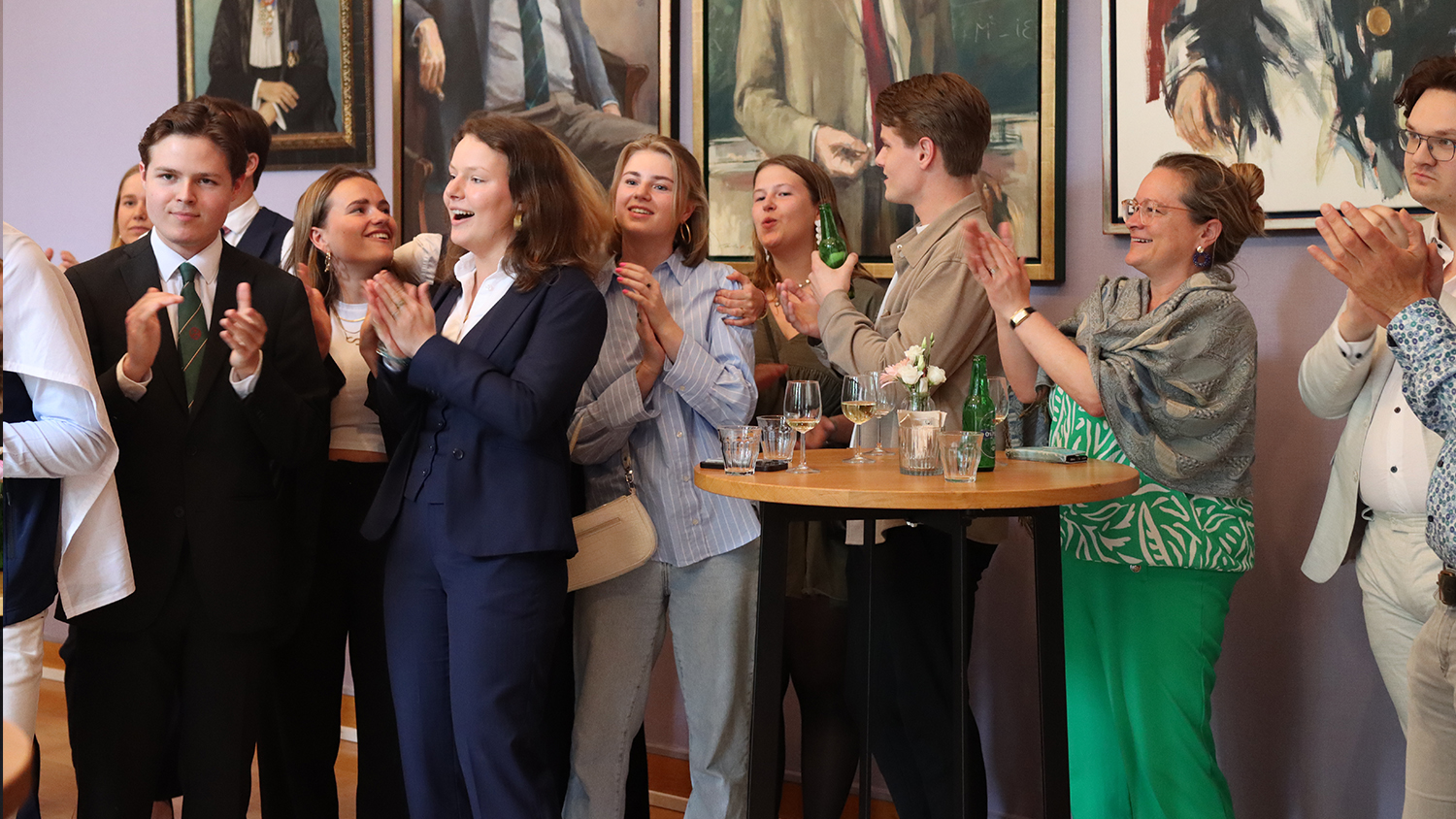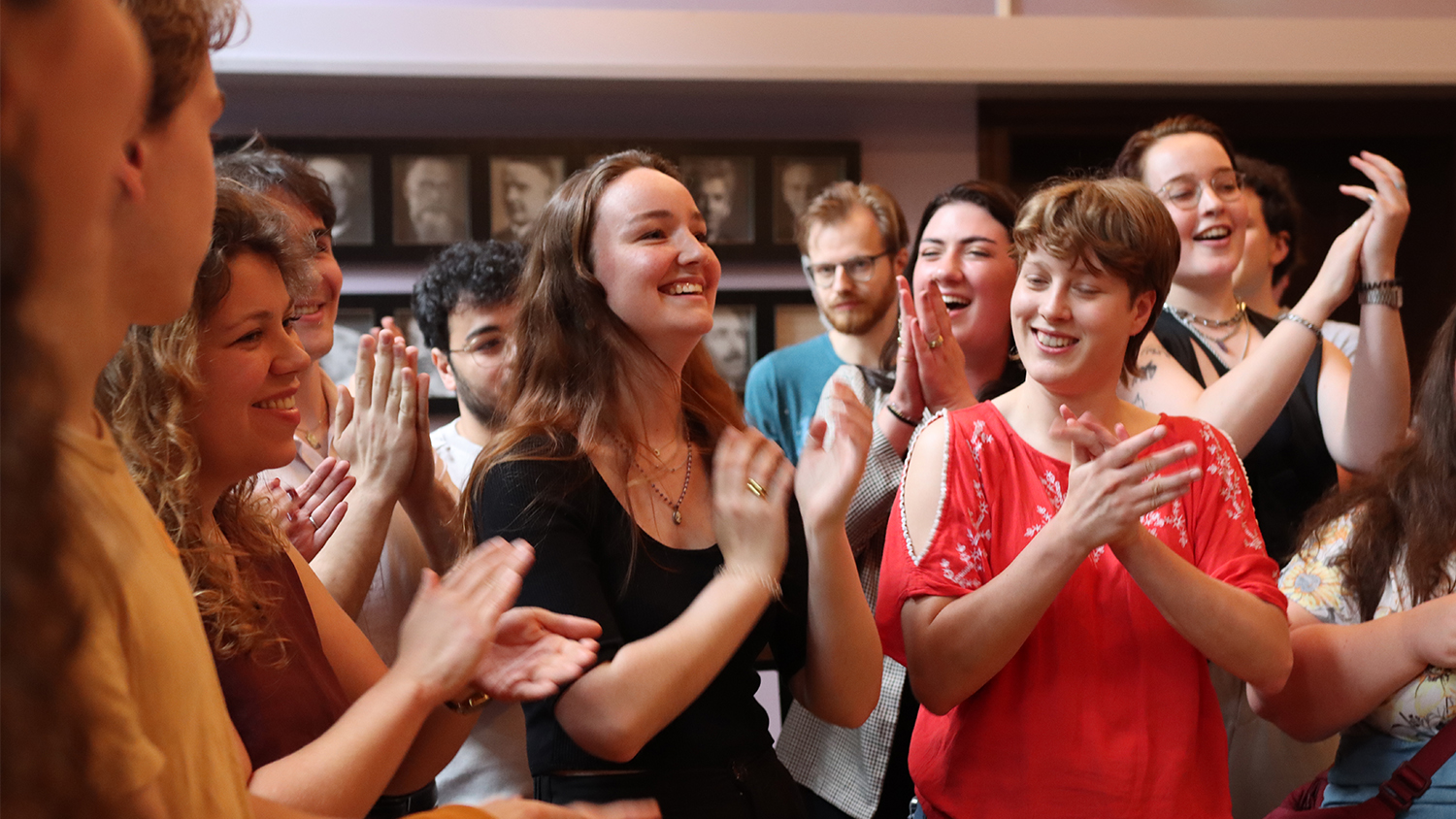Elections for student participation
VSP new to council, Lijst Vuur surrenders two seats

Most votes in this years' student elections went to Lijst Vuur again, but because PvdUS won a residual seat, both parties captured five student seats. A total of 6211 students cast their votes, with 2806 voting for Lijst Vuur. The party traditionally has the support of many study associations. PvdUS got the votes of 2345 students. That party focuses on the large student associations.
The PvdUS currently has five seats in the council and thus retains its position. Lijst Vuur has seven seats in the current student section and is surrendering two. Those two seats go to the right conservative Vrijmoedige Studenten Partij (VSP), which was competing in the election for the first time. VSP's entry brings back more variety of parties to the University Council.

Student members and candidates of the PvdUS hear they gained five seats.
Dutch language
VSP already has representatives in the council of the Vrije Universiteit (VU) in Amsterdam. The party wants to counterbalance the “one-sided, woke-inspired sound”. They are committed to freedom of speech, academic freedom and open debate at the university. The party is also in favor of preserving the Dutch language and identity.
VSP also participated in the elections at the faculty councils of Law, Economics, Governance and Organization (Rebo) and Sciences. The new international student party Better Living for Students (BLFS) received only seventy-seven votes: not enough for a place in the U Council.
The most votes (687) went to party leader of Lijst VUUR, Lieke Fokker, who studies at the faculty of Humanities. Number seven Saban Caliskan, a science student, is also a popular candidate. Caliskan is already a member of the university council this academic year and, among other things, is pushing for a critical evaluation of ties with Israeli universities and institutes.
Earlier, he expressed his disappointment to the Executive Board because of their choice not to take a stand on the conflict. His efforts earned him 437 votes, unexpectedly putting him on the council with preferential votes. Friday Caliskan expressed his intention to run for Lijst Vuur for a second year and felt “obligated” to all the students who voted for him.
For the PvdUS, most votes did not go to the list leader Sammie Verhoeven, a humanities student, but - by a small margin - to the number five: Pien van der Meij of Rebo, who received 270 votes.

Lieke Fokker of Lijst VUUR received the most votes.
VSP party leader Lloyd-Leonard Opdam, a student at Rebo, received 359 votes. He says he is “extremely happy” that VSP as a new party immediately manages to secure a spot in the University Council with two seats.
“It is exactly what we hoped for, from here we can grow further. With three seats I would have jumped into the canal”, Opdam said. He assured to represent students who “do not feel heard and seen” at the university.
Turnout
Student could vote this week for the new members of the student representatives in the University Council and faculty councils. Although turnout was higher than last year, students did not flock to the ballot box: only 18 percent of UU students cast their vote this year.
In faculty elections, turnout varied widely. At most faculties, between 10 and 20 percent of students went to vote, with Veterinary Medicine students going to the polls most often (35.5 percent). The Faculty of Medicine dangled far below with a turnout of only 6.4 percent.
Turnout for elections has been dramatically low for years. Student participation at the university suffers from a low student involvement. Staff elections take place every two years. This year, it was not possible to vote for staff members.